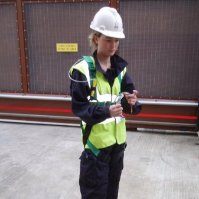Stimulating a bioeconomy – the part that planning has to play

EBRI has partnered with URS Infrastructure & Environment Ltd to provide expert planning and permitting events, support and guidance for companies interested in bioenergy development.
Ahead of EBRI’s first ‘planning and permitting for bioenergy developments’ workshop on 23.7.2014, URS Consultant Rachel Hamblin – specialising in waste, minerals and resources – discusses the importance of understanding the potential constraints to obtaining planning approval and how this links to delivering the Government’s plan for a growing bioeconomy.
Rachel writes: “on June 18th, the Government published their response to the House of Lords Science and Technology Committee Report: ‘Waste or Resource? Stimulating a bioeconomy’.
The response states that “The Government agrees it has a role in supporting the development of the bioeconomy here in the UK, including by enabling a range uses for waste such as from industrial biotechnology, biofuels production, energy from waste and anaerobic digestion. To that end, the Government will develop a long term plan for delivering and supporting a growing bioeconomy by early 2015.”
Looking through the response, much of the work in developing the long term plan looks to be focussed on the research and development of technologies and solutions as well as sourcing, locating and developing sustainable feedstock – waste in particular as a feedstock is mentioned throughout the response.
To get facilities up and running on the ground and in the right places however, will depend on developers and project managers having a good knowledge of what is required to push bioenergy projects through from concept to implementation. Obtaining planning approval and an Environmental Permit for facilities is one element of this and has a major role to play in delivering bioenergy infrastructure in the UK. Developers may have the technological solution, the finance and the feedstock in place, but the likelihood of achieving planning permission will be dependent on a whole range of other considerations that can often be overlooked at project inception. The Environmental Permitting process also requires an in-depth understanding of how a facility will operate – not just the technology itself but how the facility will be managed in the context of its environmental setting.
Early consideration and understanding of the potential constraints to obtaining planning approval is important. The selected technology may be efficient, reliable and paid for and the feedstock may be locally sourced and have an optimum calorific value but…. the site earmarked for development might be in Flood Zone 3 or adjacent to a Site of Special Scientific Interest or may be allocated for a different use in the Local Plan. Even where there is supportive policy at a local level for bioenergy development, site specific considerations have to be evaluated on a case by case basis. Lack of site selection reasoning and consideration of alternatives can put the planning at risk.
The Coalition Government has made much over the past year or so of their ‘streamlining’ of the planning system with the aim of ensuring that planning rules or poorly managed planning processes do not unnecessarily prevent or delay development. This is all very well and good in its broadest sense but the planning process still remains somewhat of a minefield for the inexperienced and knowing where to start is sometimes as difficult as getting started.
We will have to wait and see what the finer details of the Government’s long term plan for the bioeconomy are, but when push comes to shove and development is on the cards, obtaining planning permission for new facilities, large and small, will be vital to deliver the reality.”
If you have a bioenergy development scheme in mind but are unsure of the planning process, or would like support to go through your proposal, EBRI is able to offer companies and organisations in the West Midlands free planning and permitting support through workshops and 1:1 support. A ‘planning and permitting for bioenergy developments’ workshop is taking place on 23rd July 2014. Place are limited so book your place early!


